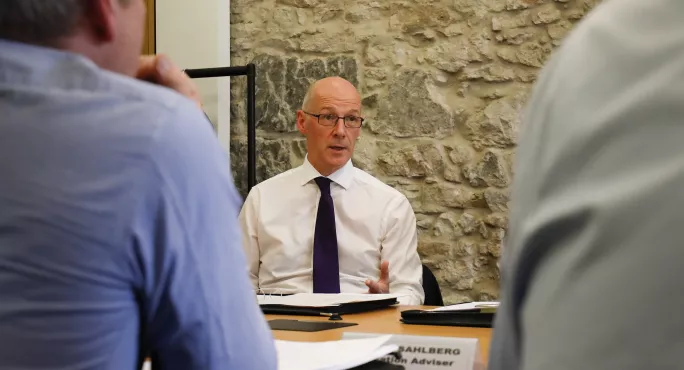The Scottish education secretary has vowed to use “every channel available” to ensure that teachers dictate when pupils sit the new national assessments in literacy and numeracy, not councils.
John Swinney was responding to criticism from the EIS teaching union which says that the vast majority of Scottish councils are dictating to their schools when the tests must be sat and had therefore “breached” government guidance stating that decision should be taken by teachers.
During a question and answer session following Mr Swinney’s keynote address to the Scottish Learning Festival in Glasgow yesterday EIS general secretary Larry Flanagan said that the government talked about empowering teachers but was struggling to “turn rhetoric around professional voice into reality”.
Mr Flanagan said that 25 out of 32 Scottish councils failed to allow teachers to determine the timing of the literacy and numeracy tests introduced in P1, P4, P7 and S3 for the first time in 2017-18. This he said was “a basic example of teachers not being empowered”.
“We share the empowerment agenda but the experience of teachers is still a top down system,” said Mr Flanagan.
Mr Swinney - who was also told by a primary teacher the tests were “not fit for purpose” - said teachers should choose what point in the year it was “advantageous and appropriate” to undertake the national tests and that should be “respected around the country”.
Speaking to journalists following the keynote and just moments before he sped back through to the Scottish Parliament in Edinburgh for a vote on whether the tests in P1 should be halted - a vote the government lost by 61 to 63 votes - Mr Swinney added: “I will use every channel available to me to encourage in practice that it is essentially up to teachers to decide when it is appropriate to undertake those assessments in classrooms.
“I will raise it specifically and I will pursue it because I think it is a very legitimate issue. If we put out guidance that says it should be up to teacher judgement when it is the right time to do this that’s what should happen.”




